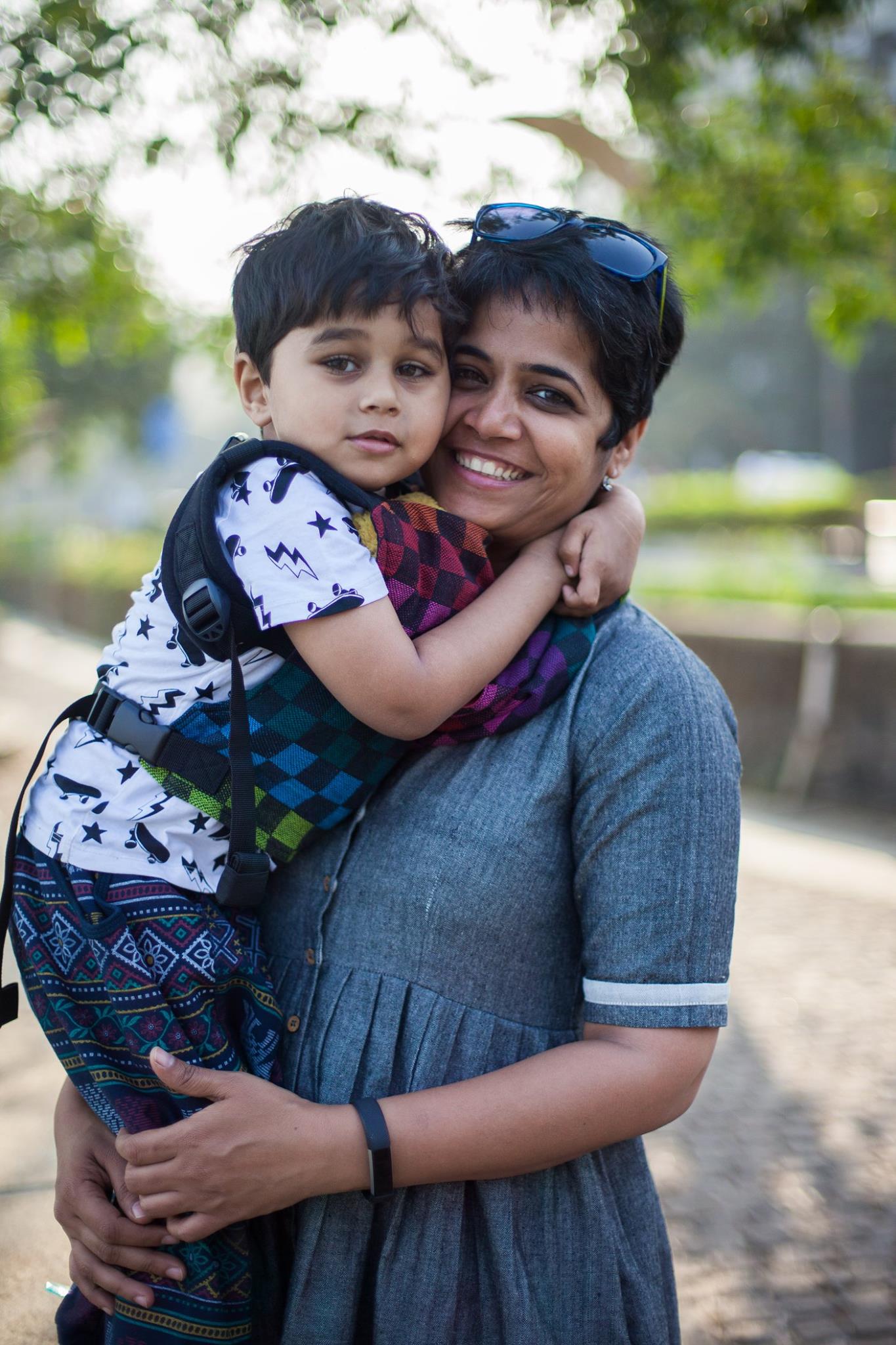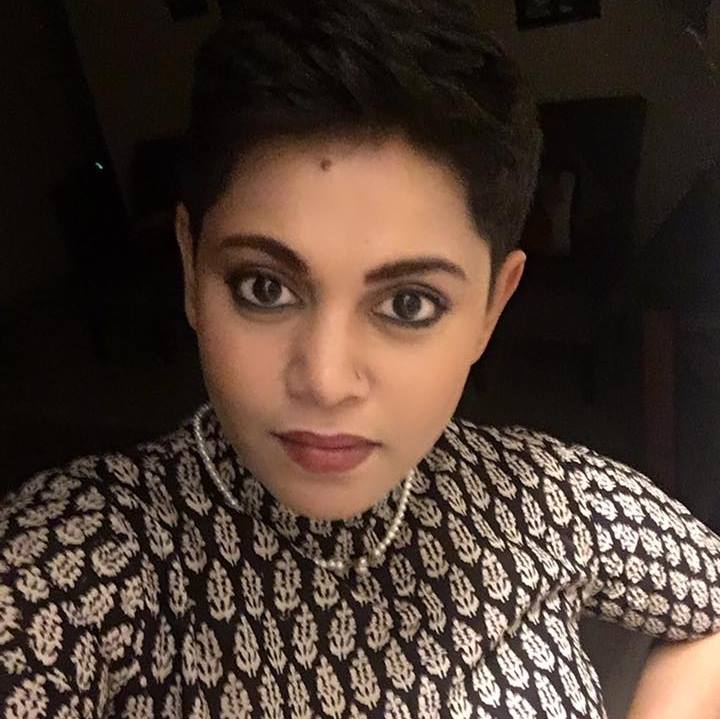Want to Shift to Eco-Friendly Menstrual Products? Get Inspired by These Women
“I remember telling myself that I have had a baby come out of my vagina, this will be fine,” says Bayiravi Mani.

My grandmother’s generation used cloth pads during their periods. However, for my generation today, we can’t imagine periods without sanitary pads. The convenience of the pads is so high that we do not stop to think of the colossal damage we are doing to the environment by using them.
Conventional sanitary napkins and tampons are a cocktail of plastics and chemicals, and can cause a variety of illnesses with long-term use. Say goodbye to them with these eco-friendly alternatives that are good for you and the environment.
To put a number to it, menstrual waste in India alone is estimated to be 113,000 tonnes annually.
An average woman will use around 16,000 or more tampons or pads in her lifetime. Which translates to about 7 billion tampons and pads landing in landfills, sewer systems and water bodies each year. Most of them contain chemicals, toxins, additives and synthetic materials such as plastic – and they will be around for centuries. Imagine leaving behind a hundred-year legacy for a single-use item!
What then is the alternative? It is a fair question to ask, and many safe, hygienic ones exist. To convince you to make the switch to sustainable menstrual waste management, I spoke to a few women and here’s what I found out.
Bayiravi Mani, 34-years-of-age and an entrepreneur based in Gurgaon says, “The driving factor for me to switch to sustainable methods was the birth of my son. From soaps to shampoos to house cleaning products – I re-looked all of it and started finding alternative products that are not harmful to the environment. After all, he was going to inherit this planet from us. I began looking for ways to make it a better world for him. I started using cloth diapers for my son instead of the synthetic diapers. Then I discovered the existence of menstrual cups.”
As the name suggests, a menstrual cup is a cup, flexible and made of medical grade silicone, worn inside the vagina during menstruation to catch the menstrual fluid. Since these cups are reusable, they are not just economic but also help reduce solid waste.
Bayiravi goes on to say how initially she found the idea of ‘sticking something into my vagina rather icky.’

“I ordered a menstrual cup. It sat in my cupboard for almost eight months. What petrified me the most was the cup getting stuck inside. Then, I remember telling myself that I have had a baby come out of my vagina, this will be fine.”
The first time Bayiravi tried using the menstrual cup turned out to be a rather funny incident. “I remember reading in a support group that I must ensure that I stay calm when inserting the cup. So there I was, standing in front of a mirror, looking unsure, hopping on one foot trying to get this cup in position, all the while smiling at myself – that mirror image was just so funny it helped me overcome my fear,” she says.
In collaboration with Aakar Innovations, The Better India is setting up a sanitary pad manufacturing unit in Ajmer, Rajasthan, that will not only produce eco-friendly or biodegradable sanitary pads but will also employ women from rural communities around the area.
Contribute to the campaign here.
Unable to view the above button? Click here
Promira Banerjee, the mother of two teenagers, age 39, and an entrepreneur has been using menstrual cups for about six months now. When asked what made her switch over, she says, “I was working on an article on incinerators, and as I researched about it, I found out how much damage we cause to the environment by using sanitary pads. That was my ‘Eureka’ moment, and I said enough is enough. Till then I also had no idea about menstrual cups.”
Promira urges everyone to shift to alternate methods, saying though she had her own doubts, in the beginning, she is now glad that she has changed to this method.
Interestingly, she messed up during her first two cycles, since she did not know how to use the cup properly. Many YouTube videos later, Promira is now a pro.

Shefali B Tiwari has been an early adopter of eco-friendly menstrual cloth pads and the cups. She started using these as long ago as 2009. Tired of being subjected to frequent Urinary Tract Infections (UTI) because of using sanitary pads, Shefali started looking for alternate methods.
“While I am doing my bit in saving the environment I am most thankful that my UTIs have stopped. The freedom that these cups offer you is immense – no more worrying about how to dispose of the sanitary pads, no fear of staining, and most importantly freedom from the stench of stale blood.”
To help more women shift to alternate methods, Shefali and a friend started a Facebook community called Sustainable Menstruation India. This group began in 2014 and has over 14,000 members today. The group aims to help women understand all about sustainable practices during periods. It also connects vendors to customers and acts as a platform to answer all related queries. Shefali says, “Start with using cloth pads and once you are comfortable explore the other options.”
“Starting off with the menstrual cup can be a bit daunting.”

While alternatives are available, the biggest challenge is not outside us, but within us – our mental block. From the day of the first period, we have been using sanitary pads, and it is almost unthinkable to use any other method.
What can help us break out of our shells is the knowledge that sanitary pads were invented only in 1888 and women for millennia have been using alternative, sustainable means to handle their periods.
With innovations in materials and availability of sustainable alternatives, this seems like an idea whose time has come.
In collaboration with Aakar Innovations, The Better India is setting up a sanitary pad manufacturing unit in Ajmer, Rajasthan, that will not only produce eco-friendly or biodegradable sanitary pads but will also employ women from rural communities around the area.
Contribute to the campaign here.
Unable to view the above button? Click here
Like this story? Or have something to share?
Write to us: [email protected]
Connect with us on Facebook and Twitter.
NEW: Click here to get positive news on WhatsApp!
This story made me
- 97
- 121
- 89
- 167
Tell Us More
We bring stories straight from the heart of India, to inspire millions and create a wave of impact. Our positive movement is growing bigger everyday, and we would love for you to join it.
Please contribute whatever you can, every little penny helps our team in bringing you more stories that support dreams and spread hope.



















